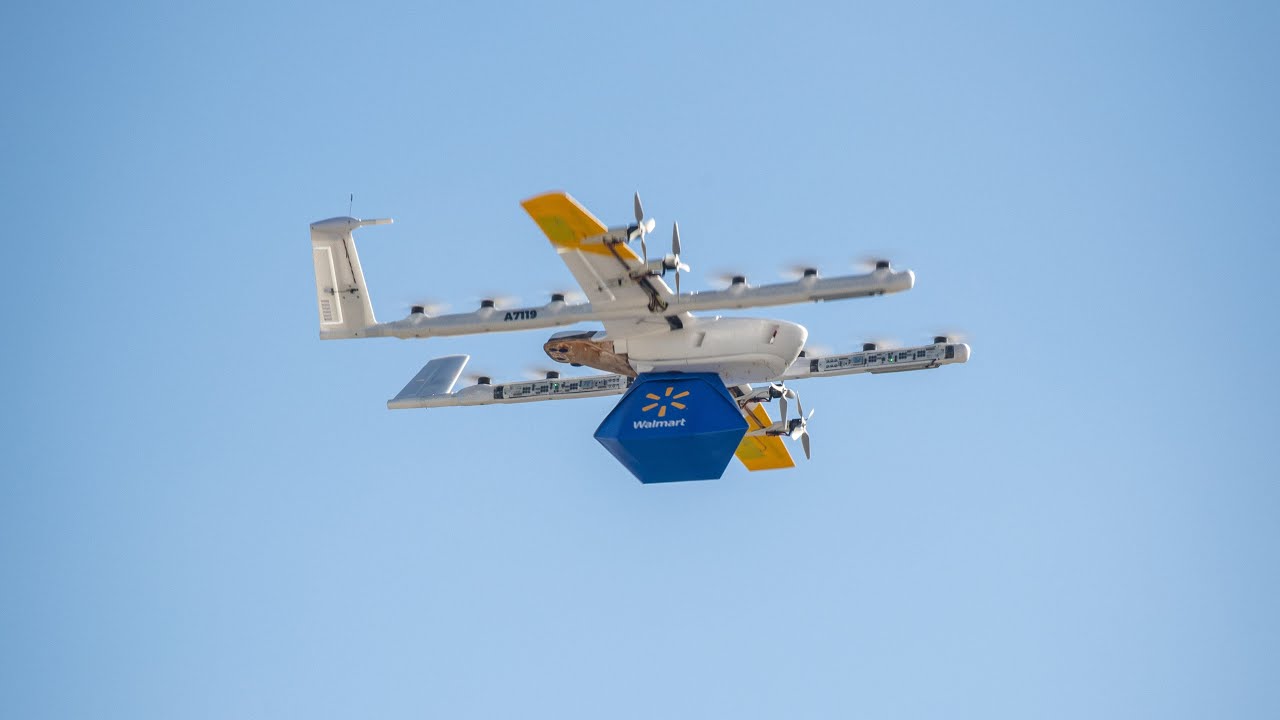In a startling incident that underscores the growing tension between technological advancements and individual privacy concerns, a 72-year-old Florida man has been arrested for allegedly shooting down a Walmart delivery drone. This incident, which occurred in Lake County, Florida, has sparked a heated debate about the implications of drone technology in residential areas.
The Lake County Sheriff’s Department reported that Dennis Winn, a resident of the area, fired at a Walmart delivery drone with a 9mm pistol, causing approximately $2,500 worth of damage. The drone was part of Walmart’s expanding delivery service, which has been operational in several states since 2021, including Arizona, Florida, and Texas. Remarkably, despite being hit, the drone managed to return safely to Walmart, where the damage was assessed.
Winn admitted to the shooting, claiming he believed the drone was spying on him. He faces several charges, including shooting at an aircraft, criminal mischief with damage over $1,000, and discharging a firearm on public or residential property. This case raises critical questions about the balance between innovation and privacy rights, as well as the proper regulatory framework for drone operations in populated areas.
The rapid proliferation of drone technology has brought convenience to many aspects of life, from package deliveries to aerial photography. However, it has also ignited significant concerns about privacy and surveillance. For residents like Winn, the presence of drones overhead can feel invasive, prompting drastic actions driven by fear and misunderstanding.
Walmart’s drone delivery program aims to enhance customer service by providing faster and more efficient delivery options. Yet, incidents like this highlight the need for companies to better communicate their operations and reassure residents about their privacy. Transparency about flight paths, data collection, and the purpose of drone missions could mitigate some of the anxieties that lead to such extreme reactions.
Winn’s arrest brings to light the legal complexities surrounding the use of drones in public and residential spaces. Shooting at a drone, classified legally as an aircraft, carries severe penalties due to the potential risk to public safety and property. This case may set a precedent for how similar incidents are handled in the future, emphasizing the importance of adhering to legal standards when addressing perceived invasions of privacy.
Moreover, the incident underscores the need for clear and comprehensive regulations governing drone use. As drone technology continues to evolve, lawmakers must strike a balance between fostering innovation and protecting citizens’ privacy rights. Establishing designated no-fly zones, implementing stricter licensing requirements for drone operators, and educating the public about the legal and safe ways to address privacy concerns are essential steps in this direction.
The clash between Winn and the Walmart drone is emblematic of broader societal tensions as we navigate the integration of new technologies into daily life. It serves as a reminder that while technological progress brings numerous benefits, it must be managed thoughtfully to prevent unintended consequences.
As drone delivery services become more ubiquitous, incidents like this will likely become more common unless proactive measures are taken. Companies, regulators, and communities must work together to ensure that technological advancements do not come at the expense of individual privacy and safety. Only through collaboration and understanding can we harmoniously integrate these innovations into our lives.


Leave a Comment